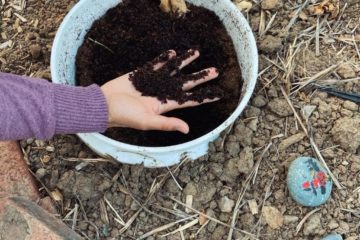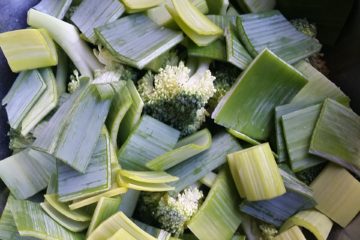Written by Taylor Mogavero, Program Coordinator
In this article, we are going to discuss some of the highlights of the phenomenal book “Decolonize Your Diet: Plant-Based Mexican-American Recipes for Health and Healing” written by Luz Calvo and Catriona Rueda Esquibel. Not only does it explore the intersection of food, culture, and health to reclaim traditional Mexican-American cuisine and promote wellness – but is also a cookbook filled with mouthwatering recipes. Let’s dive into the details.
After being diagnosed with breast cancer, Luz discovered that Latinas in Mexico had significantly lower rates of breast cancer compared to US-born Latinas. The longer someone stayed in the US, the higher their risk of developing cancer and other diseases. This led Luz to wonder if the traditional diet of Mexico and Central America protected against these diseases prevalent in the US, such as diabetes, heart disease, high blood pressure, and certain cancers.
Prickly Pear Chia Fresca
Before colonization, Mesoamerican food was prepared through steaming, grilling, or cooking on a clay skillet called a comal. Meat was consumed in small quantities, while wild herbs and greens were gathered and eaten. They cultivated an array of beans, squash, and corn varieties, unlike the limited selection found in most grocery stores today. Corn, in particular, was used to create a diverse cuisine including tamales, tacos, atoles, tlacoyos, and more.
Ancestral Mesoamerican diet: beans, corn, squash, chilies, wild greens, prickly pear cactus, nuts, seeds, herbs, avocados, tomatoes, pineapples, papayas, pumpkin
Colonization introduced: wheat, beef, cheese, cooking oils, sugar
The authors embarked on a journey to decolonize their diet, starting with eating simple foods like fresh beans and learning to make corn tortillas from scratch. They raised chickens for eggs, started a garden with native plants like quelites (lamb’s quarter) and verdolagas (purslane), planted fruit trees, and grew Mesoamerican herbs like Mexican oregano, pipicha, pápalo, and lemon verbena. Luz said “The very act of clearing land, touching the soil with my bare hands, and planting seeds worked to re-ground my spirit.” They worked for several years on their garden and food experiments. Overtime Lux’s fears and anxiety about cancer were replaced with gratitude for their newfound connections to Mother Earth, to their ancestors, to ancestral knowledge, to their own spirits, and to the new post-cancer life they were building together.
Sipes with Maitake Mushrooms & Corn
“Decolonize Your Diet” begins with the premise that we are living with the legacy of over 500 years of colonization in the Americas. Throughout the Americas, colonization meant the transfer of land from native peoples to European, the death of millions of indigenous people, rape of native women, and the violent suppression of indigenous languages, religions, and cultures. The authors recognize the importance of indigenous knowledge, cultures, and ways of being in the world and believe in the need to dismantle colonial systems of power and knowledge.
The project of decolonizing our diet cannot be accomplished through individual acts of food preparation. Instead, the authors hope that their project will inspire their readers to think critically about the effects of colonization on the food we eat and motivate them to get involved in their communities. The book aims to inspire critical thinking about the effects of colonization on food and encourages collective action within communities. It advocates for access to organic, wholesome, ancestral foods that respect the planet’s ecosystems. Furthermore, it promotes using food to restore physical health and nurture a spiritual connection with oneself, others, and Mother Earth. The authors believe that consuming “real” food is crucial for healing and reestablishing a connection with our bodies. They acknowledge the cultural mixing that forms our identities and incorporate non-native foods in their recipes that further the goal of healing our bodies and spirits, such as carrots, beets, and cilantro.
Verdolagas, Beans, and Butternut Squash Stew
The state that reclaiming our vitality as people means embracing a plant-based diet of whole foods. In their view, people can eat responsibly whether they are vegan, vegetarian, flexitarian, pescatarians, or omnivores. And the decolonial framework there is room for multiple ways of eating, so we don’t believe everyone needs to make the same food choices. They see the preparation of food as a creative act of resistance. They are not calling for the rejection of any food not native to the Americas, nor do they desire to re-create any one diet from a previous era. They understand that all cultures are living and evolving.
Read “Decolonize Your Diet” to read more and find the recipes for dozens of delicious meals! (including
All photos are from “Decolonize Your Diet”



0 Comments